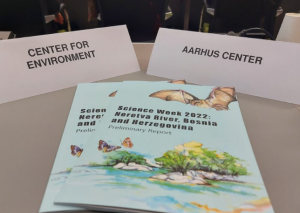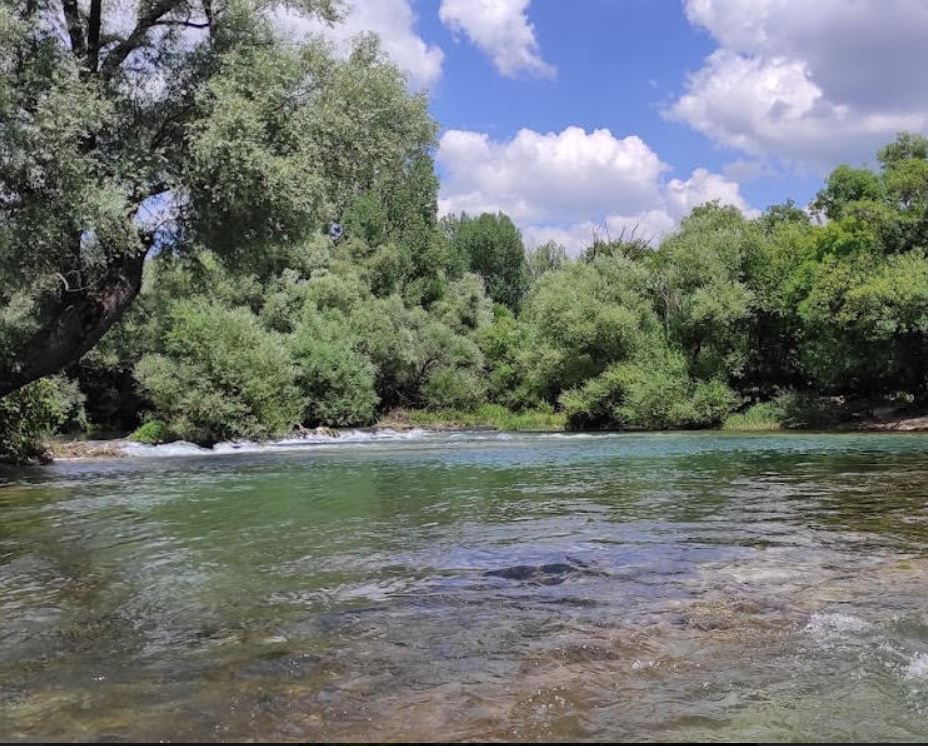In Strasbourg, recommendations for Bosnia and Herzegovina have been adopted due to the negative impacts of planned hydropower projects on the Neretva River.
 Today, at the meeting of the Standing Committee for the Convention on the Conservation of European Wildlife and Natural Habitats (Bern Convention), which took place from November 28 to December 2 at the Council of Europe in Strasbourg, France, a decision was made to open a case and adopt recommendations for Bosnia and Herzegovina proposed by independent expert Prof. Dr. Gregory Egger, a specialist in hydrobiology and aquatic ecosystems from Austria. These recommendations pertain to concrete steps needed by authorities to urgently protect the environment and biodiversity in the upper flow of the Neretva River.
Today, at the meeting of the Standing Committee for the Convention on the Conservation of European Wildlife and Natural Habitats (Bern Convention), which took place from November 28 to December 2 at the Council of Europe in Strasbourg, France, a decision was made to open a case and adopt recommendations for Bosnia and Herzegovina proposed by independent expert Prof. Dr. Gregory Egger, a specialist in hydrobiology and aquatic ecosystems from Austria. These recommendations pertain to concrete steps needed by authorities to urgently protect the environment and biodiversity in the upper flow of the Neretva River.
On the agenda of this year’s meeting was also the continuation of the appeal process initiated by the Center for Environment and the Aarhus Center in Bosnia and Herzegovina, as members of the Coalition for the Protection of Rivers in Bosnia and Herzegovina, during 2020. They filed a complaint against Bosnia and Herzegovina for violating the Bern Convention, along with organizations such as Riverwatch, EuroNatur, CEE Bankwatch Network, and ClientEarth.
Among other things, the reasons for this complaint included the complete absence of a cumulative detrimental impact assessment of all planned facilities on the high-value biodiversity found in the upper flow of the Neretva, which has been nominated as an Emerald area that, according to international obligations, Bosnia and Herzegovina had to ensure adequate protection.
The specific disputed projects include the “Ulog” Hydroelectric Power Plant (HE), “Upper Neretva” Hydropower Plant (Phase I and Phase II) in the territory of RS, as well as “Bjelimići” Hydroelectric Power Plant, “Bjelimići” Pumped Hydroelectric Power Plant, and “Glavatičevo” Hydroelectric Power Plant in the territory of FBiH, all planned in the upper flow of the Neretva River.
The opening of the case was directly supported by Germany, Luxembourg, and Austria, as well as organizations like Riverwatch, CEE Bankwatch Network, and ProNatura. None of the representatives were against the opening of the case or the adoption of recommendations for Bosnia and Herzegovina. After the decision to open the case, the session concluded with the adoption of amendments to the recommendations proposed by Germany to clarify potential ambiguities regarding the obligations of the responsible authorities in Bosnia and Herzegovina. These amendments were also supported by the Standing Committee and all delegates and were included in the official recommendations for Bosnia and Herzegovina.
The adopted recommendations, among other things, regarding projects in the territory of RS, include the official designation of the “Upper Neretva” area as an Emerald area, the adoption of regulations on ecologically acceptable flow based on scientific research, a ban on the so-called peak operation of facilities, specifying mitigation measures for endangered natural habitats, banning fish stocking as a compensation measure for negative impacts, and ensuring monitoring measures for affected species and habitats.
Certainly, the most important recommendation relates to the suspension of the construction of the “Ulog” Hydroelectric Power Plant until the complete implementation of the aforementioned recommendations, as well as the suspension of further planning and implementation of both phases of the “Upper Neretva” Hydropower Project, as well as projects planned on the tributaries of the upper Neretva, and disputed facilities in the territory of FBiH, as well as a ban on the implementation of all hydropower plans in Emerald areas in Bosnia and Herzegovina and the establishment of a focal point for the Bern Convention at the national level.
“In the expansion of hydropower projects, we observe that the legally prescribed procedures are often not respected and the broader picture of the impact of such projects on nature is not considered. We cannot remain silent in the face of all the pressures on nature that have overwhelmed our country in recent years. Such planning and approach have not left untouched the most valuable natural jewels of our country, such as the Sutjeska National Park, with planned hydropower facilities within the park (against which we also fought), as well as areas nominated for the Emerald network or nationally planned for protected natural goods. Unfortunately, the interests of capital and power are faster and stronger than nature protection, and if we see that our institutions are unable to control all these processes, it is necessary for us to engage as citizen associations, include the general and expert public, and defend the valuable natural assets of our country. The complaint submitted to the Bern Commission is one of the legitimate means of this struggle in the interest of the citizens of Bosnia and Herzegovina and the preservation of our country’s nature,” said Aleksandra-Anja Dragomirović, Vice President of the Center for Environment.
Redžib Skomorac, legal advisor at the Center for Environment, and Emina Veljović, Executive Director of the Aarhus Center in Strasbourg, personally represented the interests of the complainants. The opposite side, namely representatives of the responsible authorities from the Republic of Srpska, also participated, while the participation of representatives from the Council of Ministers of Bosnia and Herzegovina or representatives from the FBiH was absent.
In his address to the session before the Standing Committee, Redžib Skomorac stated, among other things:
“Contrary to the insistence of representatives from the Republic of Srpska, it is necessary to highlight and understand that, among other things, the ‘Ulog’ Hydroelectric Power Plant is not of vital interest to the state of Bosnia and Herzegovina, as BiH, as a full member of the Council of Europe, cannot allow or afford further violations of the Bern Convention. We support any good intentions of the relevant authorities regarding the protection of the upper flow of the Neretva, but we emphasize that declaring the area in question protected according to the regulations of only one of the BH entities is not enough, as such protection evidently implies that disputed projects remain in place. Therefore, adequate protection of the upper Neretva can only be achieved through consistent implementation of the Bern Convention and protection through the Emerald network, which the representatives of the complainants will continue to insist upon.”
Emina Veljović, Executive Director of the Aarhus Center in BiH, emphasized that the opening of the case is indeed an important precedent and a significant step for our country regarding the more effective implementation of the Bern Convention.
“The non-governmental sector has given more than the maximum to ensure that the Upper Neretva is indeed officially recognized as an Emerald area in accordance with the convention. On the opposing side, we faced a deafening silence from representatives of the state of Bosnia and Herzegovina and the FBiH, which surprised representatives from other countries during the committee meeting. Of course, representatives of the Republic of Srpska tried to lobby for the positive aspects of the ‘Ulog’ Hydroelectric Power Plant and other projects regardless of the consequences for the Upper Neretva. However, after our presentations and active lobbying, the other member states of the Bern Convention could see that this is indeed an Emerald River that must be urgently protected, and they unanimously supported us. Now it is up to all governments in BiH, including the FBiH, RS, and the state of BiH, to do the same.”
It is important to note that due to the urgency of the case and the cumulative complaint allegations, the Standing Committee, in this specific case, ordered the urgent implementation of an expert mission on the ground, which successfully concluded at the end of October this year, based on which recommendations were made and a decision was made to open the case.
We expect the relevant decision-makers in Bosnia and Herzegovina to be guided by the recommendations adopted before the Council of Europe and to implement them without delay, as the Standing Committee called on representatives of Bosnia and Herzegovina to submit their first report on the implementation of the recommendations at the next meeting of this body scheduled for April 2023.



![Maxresdefault[1]](https://novival.info/wp-content/uploads/2021/05/maxresdefault1.jpg)